Curiously, Bangalore aka Bengaluru, the glitz and glamour city widely acknowledged as India’s Silicon Valley, seems to care little about education especially of the poor majority bypassed by the garden city’s transformative IT revolution. During the past 18 months of the Covid-19 pandemic lockdown, a majority of the city’s children have had no access to online education – Zahid H. Javali
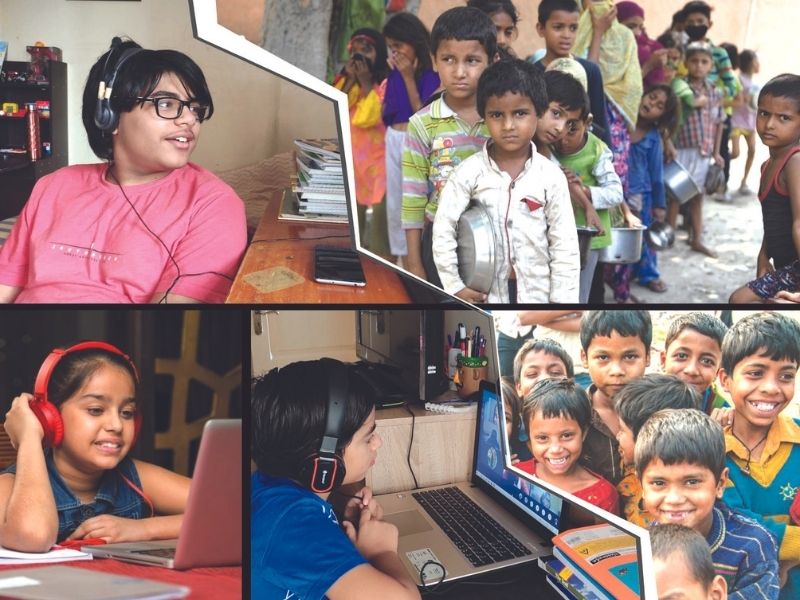
LFH & out-of-school children in IT capital: official and industry indifference
The admin capital of the southern state of Karnataka (pop.68 million), Bangalore aka Bengaluru, which miraculously transformed from a laid-back pensioner’s paradise into an information technology (IT) hub following an IT industry boom of the 1990s, has since maintained its status as India’s Silicon Valley. Despite competition from neighbouring cities Hyderabad and Chennai and the garden city’s deteriorating civic and public infrastructure, Bengaluru is undisputedly India’s IT capital.
During the past three decades it has developed into the world’s fourth largest IT cluster after Silicon Valley (California), Boston, and London and hosts the India headquarters of several multibillion dollar US-based IT multinationals including Microsoft, Intel, Cisco, Dell, Google and IBM. Moreover, India’s IT transnationals — Infosys, Wipro, Byjus and Flipkart — have also established their headquarters in this still green multicultural city of two great public parks, 189 lakes, 1,000 pubs and restaurants and 200 engineering colleges which provide a steady inflow of high quality graduates into the city’s IT and ICT (information communication technology) companies.
London & Partners — the mayor of London’s international trade and investment agency — ranks Bengaluru as the fastest-growing mature tech ecosystem in the world, followed by London, Munich, Berlin and Paris. According to L&P, the inflow of foreign investment has grown by a multiple of 5x since 2016 to $7.2 billion (Rs.54,000 crore) in 2020. Furthermore the city, known for its year-round agreeable weather, has incubated the growth of 44 percent (19) of India’s unicorn companies valued at over $1 billion.
With the IT industry directly employing 1.5 million of the city’s 12 million residents, and associated industries and businesses another 1.5 million, Bangalore’s IT and ICT companies earn 40 percent of the country’s aggregate annual computer software exports revenue, estimated at a staggering $195 billion (Rs.14 lakh crore). Consequently, this IT city’s annual GDP per capita (ppp) estimated (by the Brookings Institute, India, recently renamed Centre for Social & Economic Progress, Delhi) at $16,000 (Rs. 12 lakh) is double the per capita national income of $6,390 (PPP) per year. With monthly salaries in IT and associated companies averaging over Rs.2 lakh per month, markers of affluence are visible throughout the city in which construction activity — gated residential colonies, sky-kissing apartment blocks, roads, flyovers, sidewalks — continues despite the pandemic slowdown. As a result, the city municipal corporation rakes in Rs.2,460 crore annually as property tax, bettered only by Mumbai and Delhi. However, this hasn’t resulted in world-class roads, sanitation and civic projects because of pernicious institutionalised corruption.
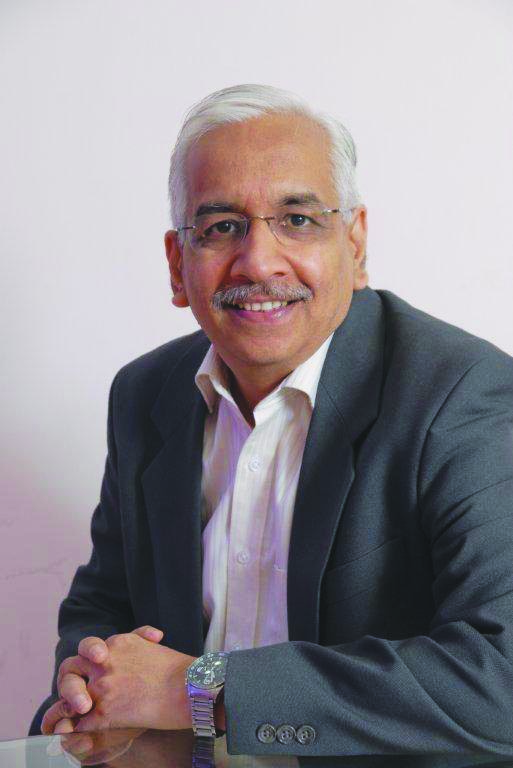
V. Ravichander
“By Indian standards, Bangalore is a very wealthy city. There’s huge inflow of hard currency wealth annually. But the city is divided into upscale Bangalore of the upper and middle classes and down-market Bengaluru of the struggling majority. And Bengaluru’s children — especially in government and low-end budget private schools — have been severely neglected for 18 months of the Covid lockdown. Neither government nor the wealthy IT industry has applied their minds to bridge the education deficit of children who have suffered very damaging learning loss. The fallout of this widening education inequality can disrupt social harmony of the garden city. Government and IT companies need to cooperate to connect and wire up all government and budget private schools of the city,” advises V. Ravichander, a learned (BITS-Pilani, IIM Ahmedabad) former management consultant (Feed Consultancy Services) and currently director of the Bangalore International Centre (estb.2009).
Somewhat curiously this fast track city funded by intellectual capital seems to care little about education — especially of the poor majority who have been bypassed by the garden city’s transformative IT revolution. According to an Internet and Mobile Association of India (IMAI) survey of November 2019, 60 percent of the city’s population is unconnected with the Internet. Moreover, a mere 7 percent of Internet users are aged 12-15 years and 11 percent in the 16-19 age group. Translated, this means that in India’s Silicon Valley city, the vast majority of children and youth — future wealth creators — have been denied school and college education for the past 18 months during which all schools and college campuses were under government mandated lockdown for fear of the Covid-19 pandemic.
The damning conclusions of the IMAI survey are confirmed by the Unified District Information System for Education (UDISE+). Its 2019-20 report says that only 7.7 percent of government schools in Karnataka have Internet access and only 34.3 percent have functional computer facilities.

Ahmed: massive school dropouts
“Bengaluru may be India’s IT capital but it’s not a role model for IT-enabled new technologies education. Since the pandemic forced the closure of schools, the digital divide in education has become stark. Low-income households — the majority — don’t own computers, laptops and smartphones and at best have to make do with one smartphone shared by all family members including children. That’s why when schools were ordered to close and learning moved online, there was mass dropout of children from the school system. For instance in 2020-21, the enrolment in nurseries of private budget schools was just 2 percent and 10-15 percent in other private schools. The city’s 4,000 private budget schools which provide affordable education to children of low-income households are reporting only 20-30 percent attendance for online classes,” says Afshad Ahmed B.Z, president, Private Schools and Children Welfare Association, Karnataka, which has 500 member schools, and managing trustee of the Bangalore Public School which has 700 children and 25 teachers.
The shocking neglect of children’s education in India’s premier IT city is confirmed by another report submitted to the Karnataka high court on July 16 by the Associated Managements of Primary and Secondary Schools, Karnataka (KAMS). The survey reveals that 60,094 students dropped out of 250 budget private schools (BPS) in the academic year ended April 30, 2021. Aggregate enrolment of the schools surveyed plunged by 33 percent from 185,933 in 2019-20 to 125,839 in 2020- 21. The major reason for this sharp drop-out of children from school is that lower-middle and working-class households have suffered severe income and employment loss during the pandemic and couldn’t afford even the modest tuition fees — the lowest worldwide — that BPS levy. Moreover, they can’t afford Internet connectivity and digital devices required for online learning, say KAMS spokespersons.
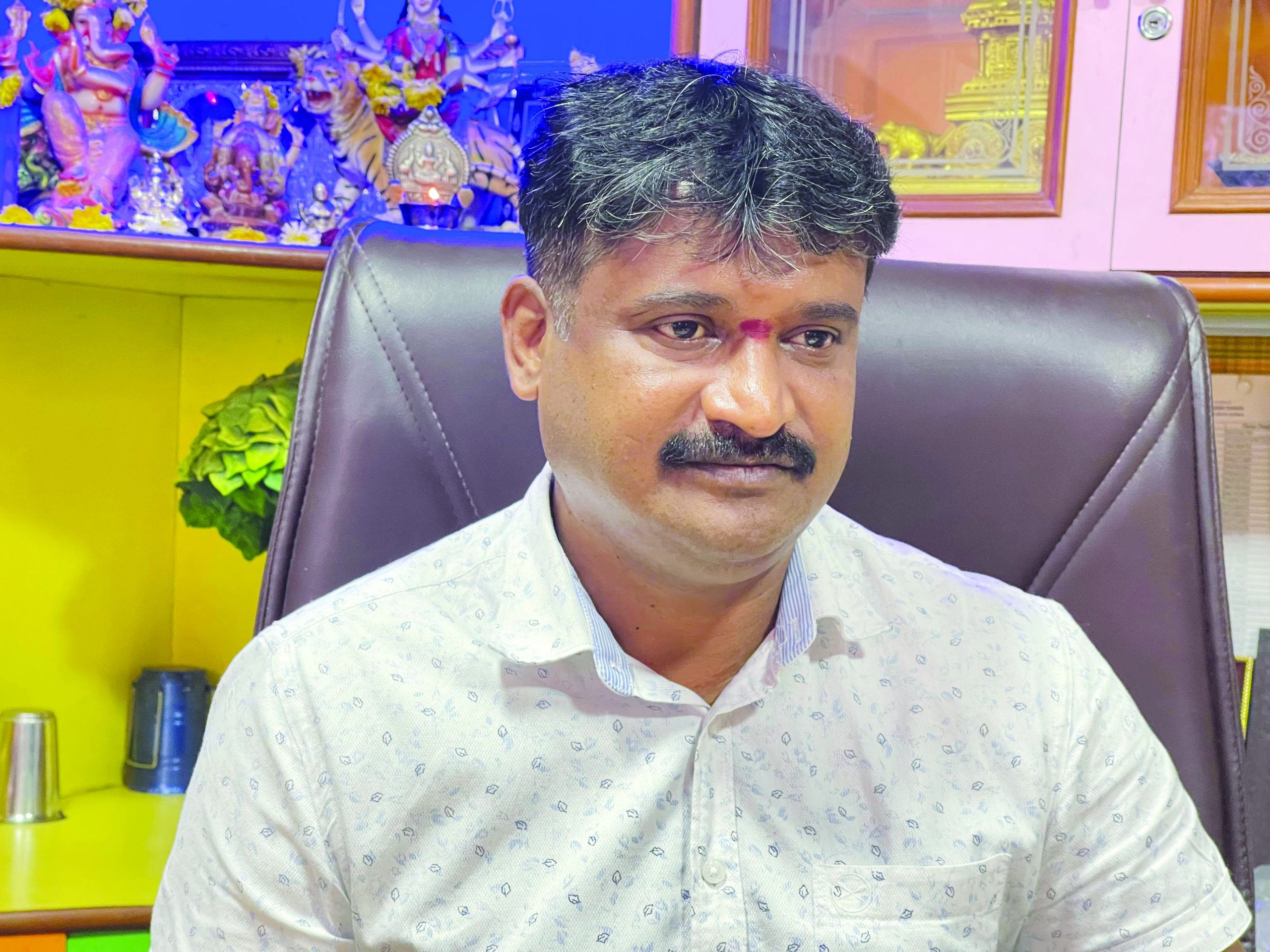
Shashi Kumar: political will deficit
“Thousands of children have dropped out of government and private schools in Bengaluru because their parents cannot afford to buy smartphones, computers and tablets and pay monthly Internet data charges. Internet connectivity is also a big problem. The city may be India’s Silicon Valley but in terms of Internet speed and connectivity, it lags way behind Silicon Valley, USA. Most children in our member schools have no choice but to learn from pre-recorded lessons because live classes are regularly disrupted by poor Internet connectivity. Moreover, costs are very high when online video classes are conducted on platforms such as Zoom, and often even middle income families cannot afford them. The state government has never tried to resolve this Internet connectivity problem nor address the issue of lack of digital devices in poor households during almost two years of schools lockdown. There is no political will to bridge the digital divide in education in India’s IT capital,” laments D. Shashi Kumar, general secretary, Associated Managements of Primary and Secondary Schools of Karnataka (KAMS) which has 3,600 member schools statewide.
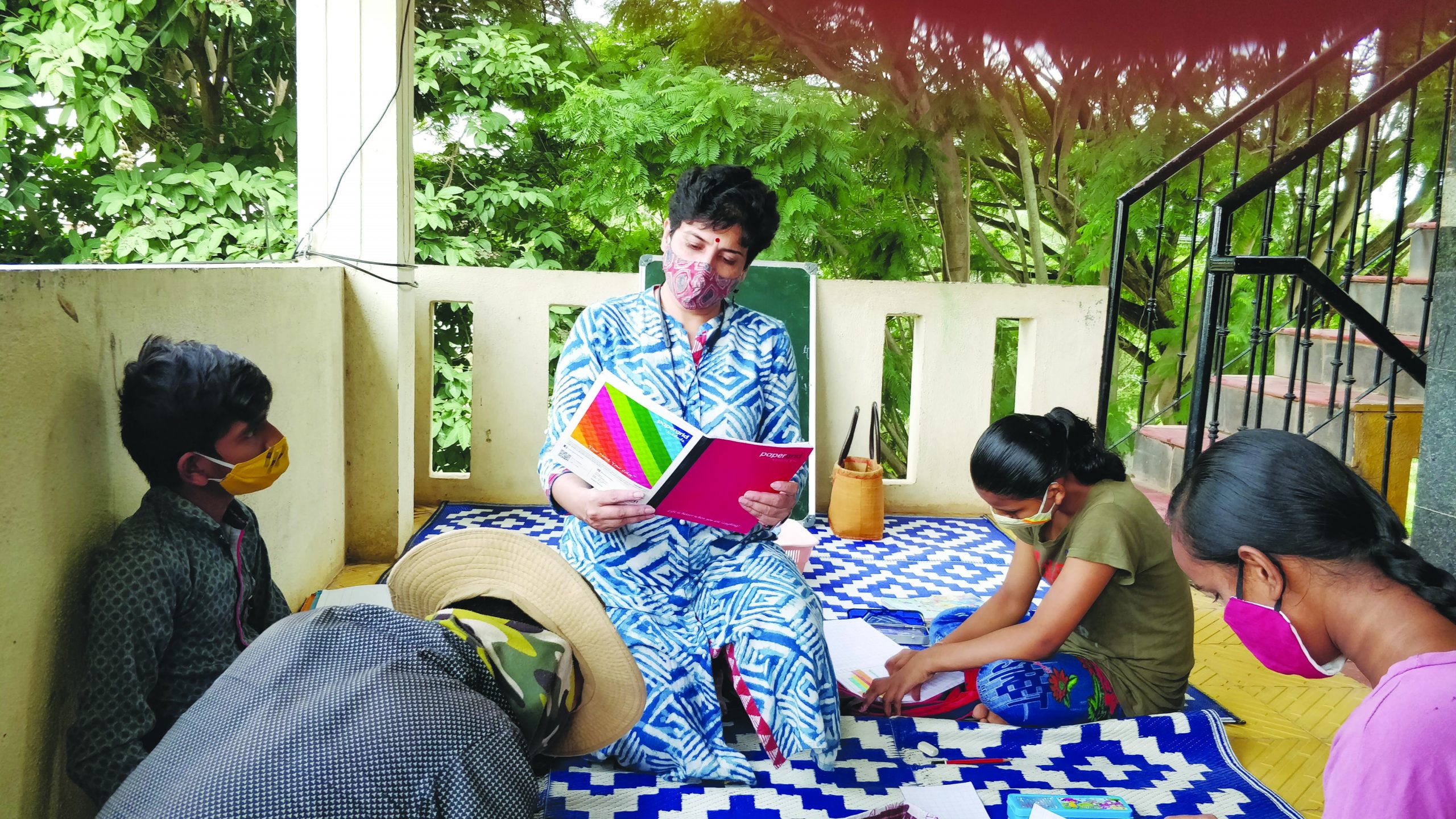
Somya Nand: urgent reopening call
Inevitably, children from bottom-of-pyramid households in India’s IT city have been hit hardest by the pandemic. “Out of the 750 children of migrant labour we work with, we were able to connect online with only 22. Therefore, we had to give up online classes and opt for in-person education for all 750 students using community learning spaces such as rented warehouses and temple grounds. It will take years to bridge the digital divide in education. The best option is to immediately reopen schools from pre-primary to secondary so that remedial programmes can be started to address the huge learning loss children have suffered over the past year,” advises Somya Nand, co-founder of Gubbachi, a Bengaluru-based NGO which has been providing bridge classes for children of migrant communities since 2015.
The appalling indifference to maintaining learning continuity of children in government and BPS displayed by the Karnataka government and IT industry leaders and professionals hasn’t only imperilled the future of 9.5 million children in government, aided and budget private schools, it has also hard hit the teachers’ community.
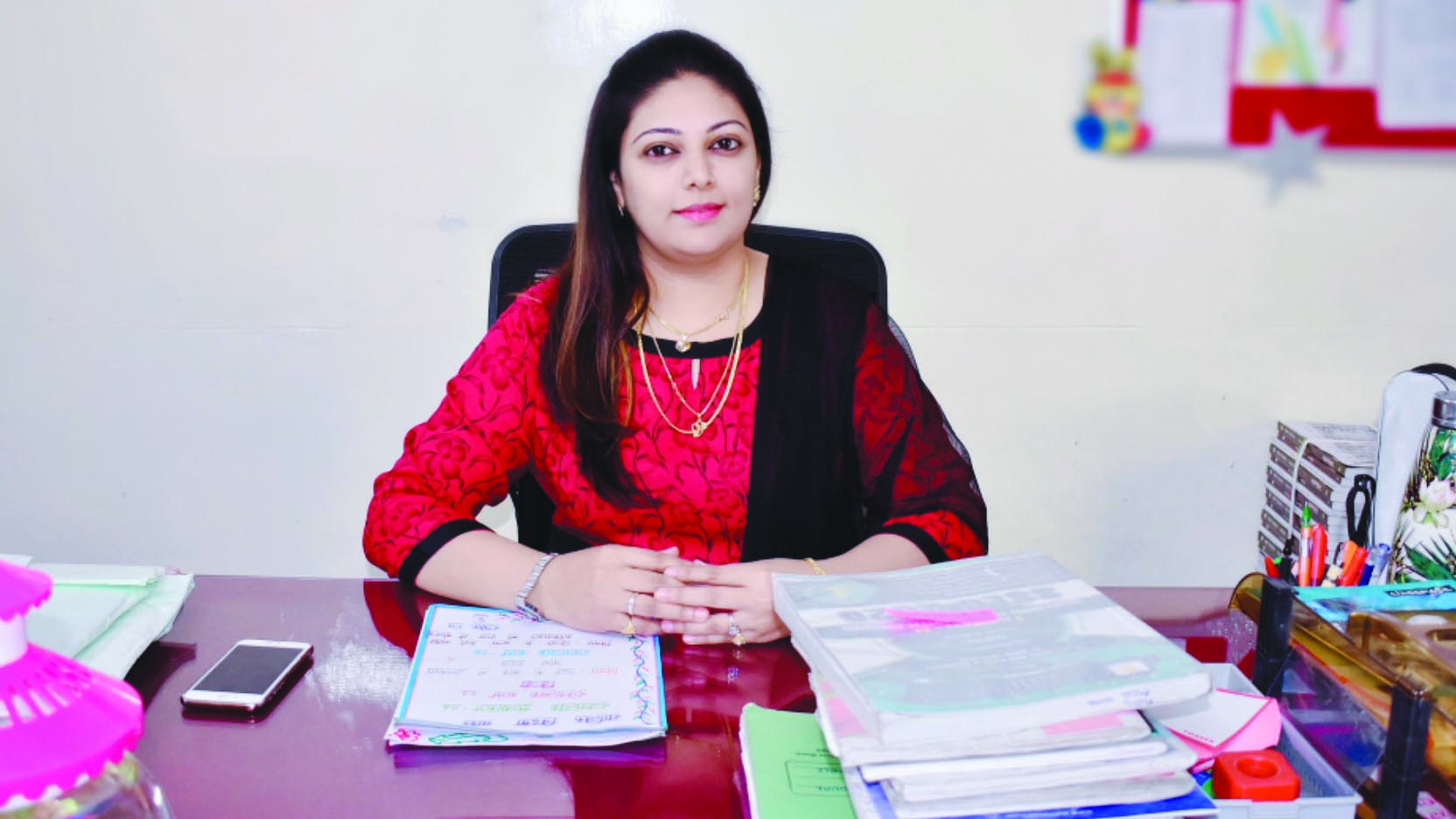
Aaisha Shaikh: teachers trauma
When government peremptorily ordered closure of schools countrywide in March 2020 and mandated a switch to online schooling, most BPS teachers were unprepared and untrained to manage the sudden shift to digital education. Many were unfamiliar with digital devices, nor could they afford high-speed broadband connectivity to sustain five-six hours of daily online classes. An estimated 100,000 teachers are employed in the city’s 20,000 unaided private schools, and excluding a few hundred working in top-ranked CBSE/CISCE/international schools, the majority are poorly remunerated (Rs.10,000-15,000 per month vs. Rs.25,000-Rs 45,000) for government primary school teachers) and unable to afford computers/laptops and hi-speed Internet connectivity. According to Aaisha Shaikh, Bengaluru-based secretary of the recently registered (February 2021) Federation of Independent Recognised School Teachers (FIRST), Karnataka, unaided private school teachers, especially BPS teachers, ordered to teach from home without provision of connectivity and digital devices by hard-pressed school managements, have suffered trauma and financial loss.
“Public and media attention during the pandemic was mainly focused on children and the learning loss they suffered because of schools closure and lack of digital connectivity. But what about teachers, particularly BPS teachers who have suffered because of shutdown of schools? The majority don’t own computers, laptops and tablets and were forced to use their low-end smartphones for conducting online classes. This caused stress and strain as basic smartphones don’t support long-duration video classes. Employer schools can’t purchase digital gadgets for teachers because large numbers of parents haven’t paid fees. FIRST Karnataka has made several appeals to the government to sanction zero interest loans for teachers to buy digital gadgets for online classes. But to no avail. Ditto all our appeals to IT companies to help private unaided school teachers. It’s a shame that the city’s rich IT companies didn’t come forward to provide any assistance to teachers who went out of their way to continue the learning of children during the pandemic,” says Shaikh, principal of Sathwik Vidya Mandir, a state board-affiliated school in Bengaluru.
India’s prolonged lockdown of schools for over 60 weeks — the longest worldwide — although welcome initially as a necessary evil to safeguard children against the deadly Coronavirus, and the accumulated learning damage suffered by youngest children, has prompted re-thinking on the subject. Particularly since evidence has emerged that children are less susceptible to the Covid virus and primary-secondaries abroad (the UK, France and US) restarted normative schooling several months ago. With the Central and state governments doing precious little to fund development of digital infrastructure in government schools, pandemic relief packages pointedly excluding private school managements, and the digital divide between urban middle class children and the rest getting wider, informed opinion is in favour of primary-secondary schools reopening asap.
“The switch to online schooling has widened the education divide between Bengaluru’s rich and poor. Only edtech companies have benefited from online education. And instead of helping state schools with digital infrastructure, the government has encouraged education discrimination by not allowing schools to reopen for over 16 months. It knows very well that parents from low-income households cannot afford digital devices and the Internet, but still continues to mandate online schooling for primary schools. Our demand is that all schools stop online instruction and immediately reopen all classes,” says B.N. Yogananda, general secretary, RTE Students & Parents Association (RTE-STUPA) and the Karnataka Private School Parents Associations’ Coordination Committee.
IT capital lamentations
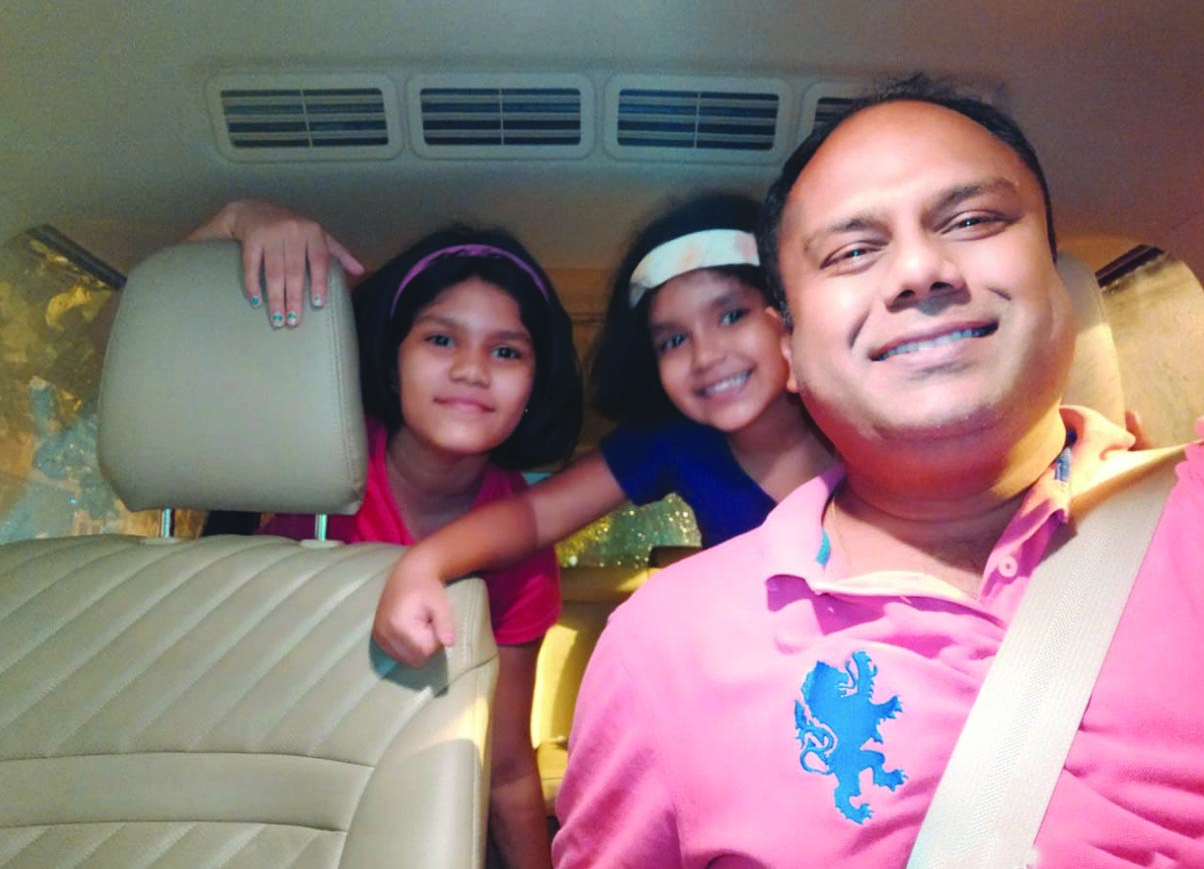 Indranil Roy Choudhury, senior IT manager and father of two children (11 & six): “For the past one year I have been helplessly watching my children struggle with impersonal online classes. Worsening the situation in India’s IT capital are the constant Internet connectivity blips at home and server outages at school.”
Indranil Roy Choudhury, senior IT manager and father of two children (11 & six): “For the past one year I have been helplessly watching my children struggle with impersonal online classes. Worsening the situation in India’s IT capital are the constant Internet connectivity blips at home and server outages at school.”
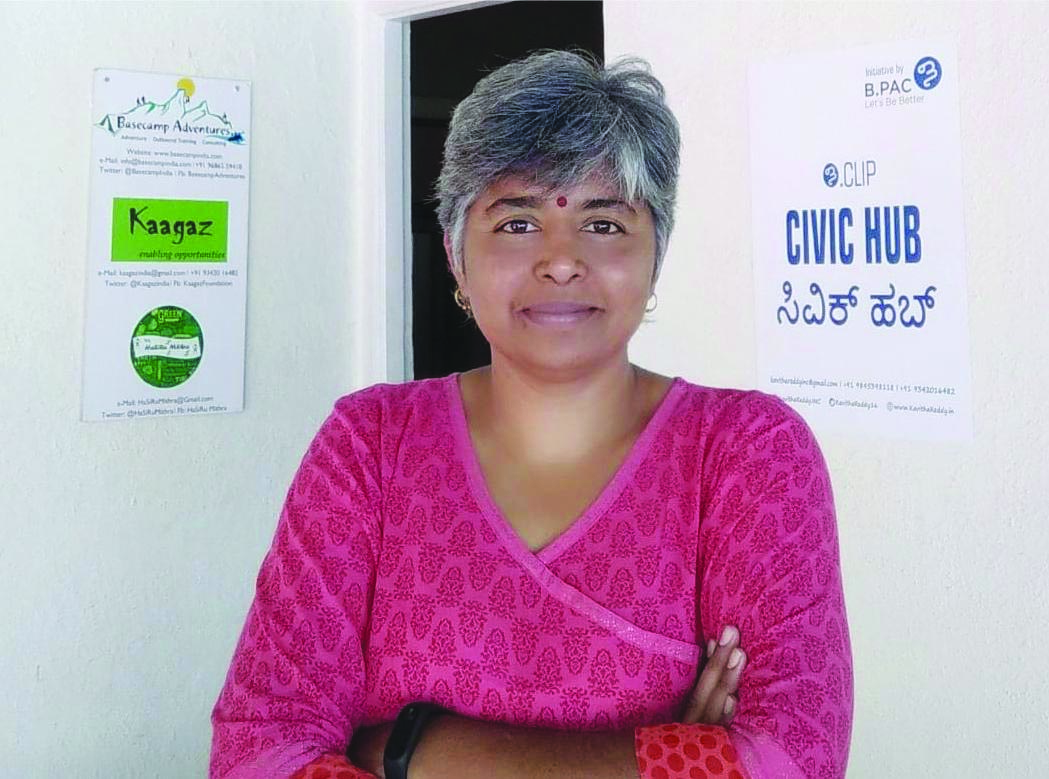 Kavitha Reddy, social worker: “The challenges of online education are affordability, access, efficacy, and holistic learning. Due to un[1]affordability of digital devices and Internet connectivity, thousands of children from low-income households in Bengaluru have dropped out of school, and have been driven to join the labour force. This is a major social injustice.”
Kavitha Reddy, social worker: “The challenges of online education are affordability, access, efficacy, and holistic learning. Due to un[1]affordability of digital devices and Internet connectivity, thousands of children from low-income households in Bengaluru have dropped out of school, and have been driven to join the labour force. This is a major social injustice.”
 Vinita Kaul, social volunteer, HR consultant, and mother of two: “Bottom-of-pyramid households in the city are struggling to buy digital gadgets to continue their children’s schooling. The state government should have taken proactive steps to provide digital devices and Internet connectivity to poor households.”
Vinita Kaul, social volunteer, HR consultant, and mother of two: “Bottom-of-pyramid households in the city are struggling to buy digital gadgets to continue their children’s schooling. The state government should have taken proactive steps to provide digital devices and Internet connectivity to poor households.”
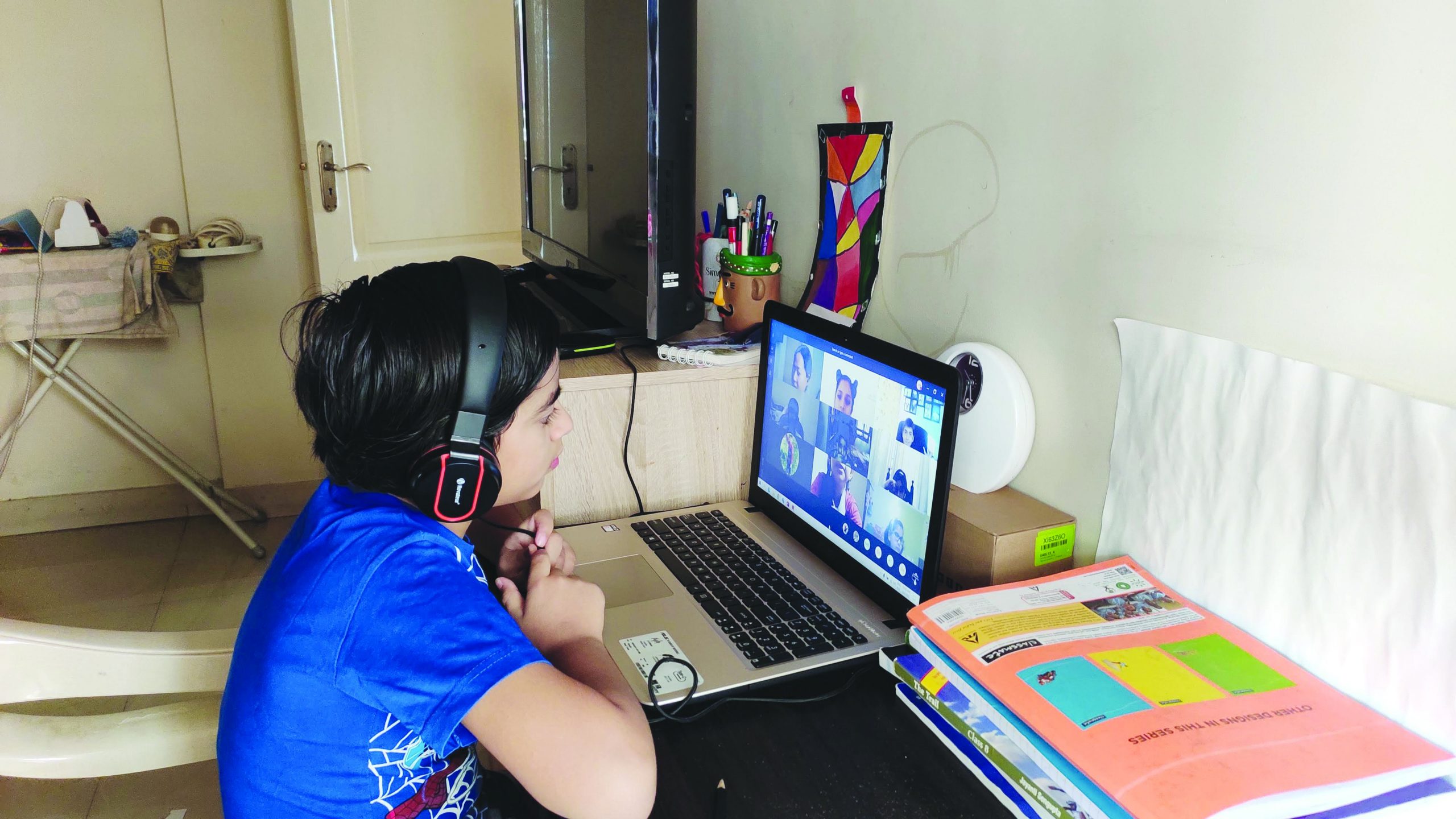 Vihaan, class V student: “My online classes are often disrupted because of unstable Internet connection. I miss going to school and meeting my friends.”
Vihaan, class V student: “My online classes are often disrupted because of unstable Internet connection. I miss going to school and meeting my friends.”
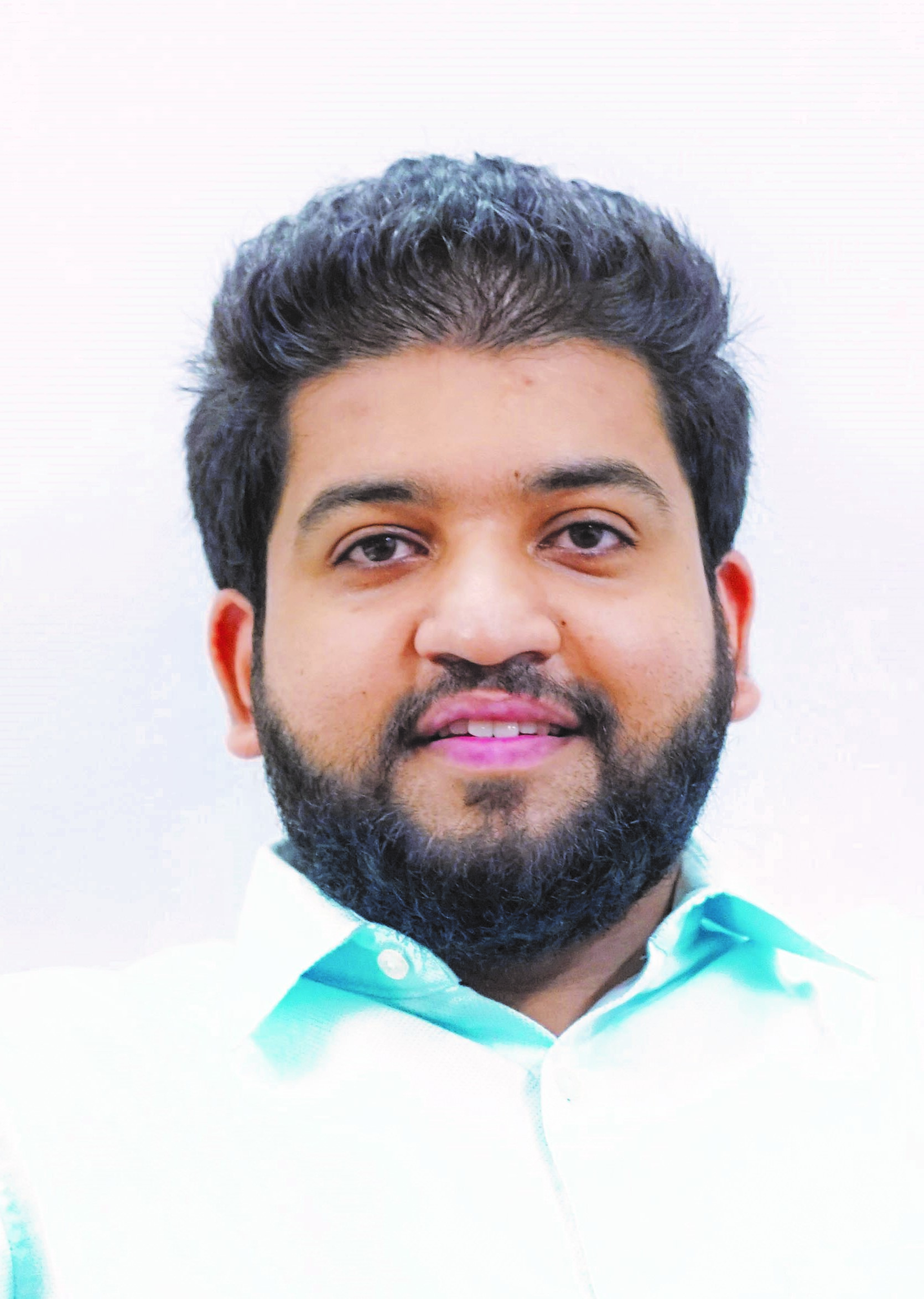 Nabeel Baig, corporate trainer, counsellor & motivational speaker: “The pandemic has exposed Bengaluru’s deep digital divide. Lakhs of children have missed out on an entire year of schooling because their parents couldn’t afford digital devices and Internet connections. Reopening schools for all classes with adequate safeguards is an urgent necessity.”
Nabeel Baig, corporate trainer, counsellor & motivational speaker: “The pandemic has exposed Bengaluru’s deep digital divide. Lakhs of children have missed out on an entire year of schooling because their parents couldn’t afford digital devices and Internet connections. Reopening schools for all classes with adequate safeguards is an urgent necessity.”
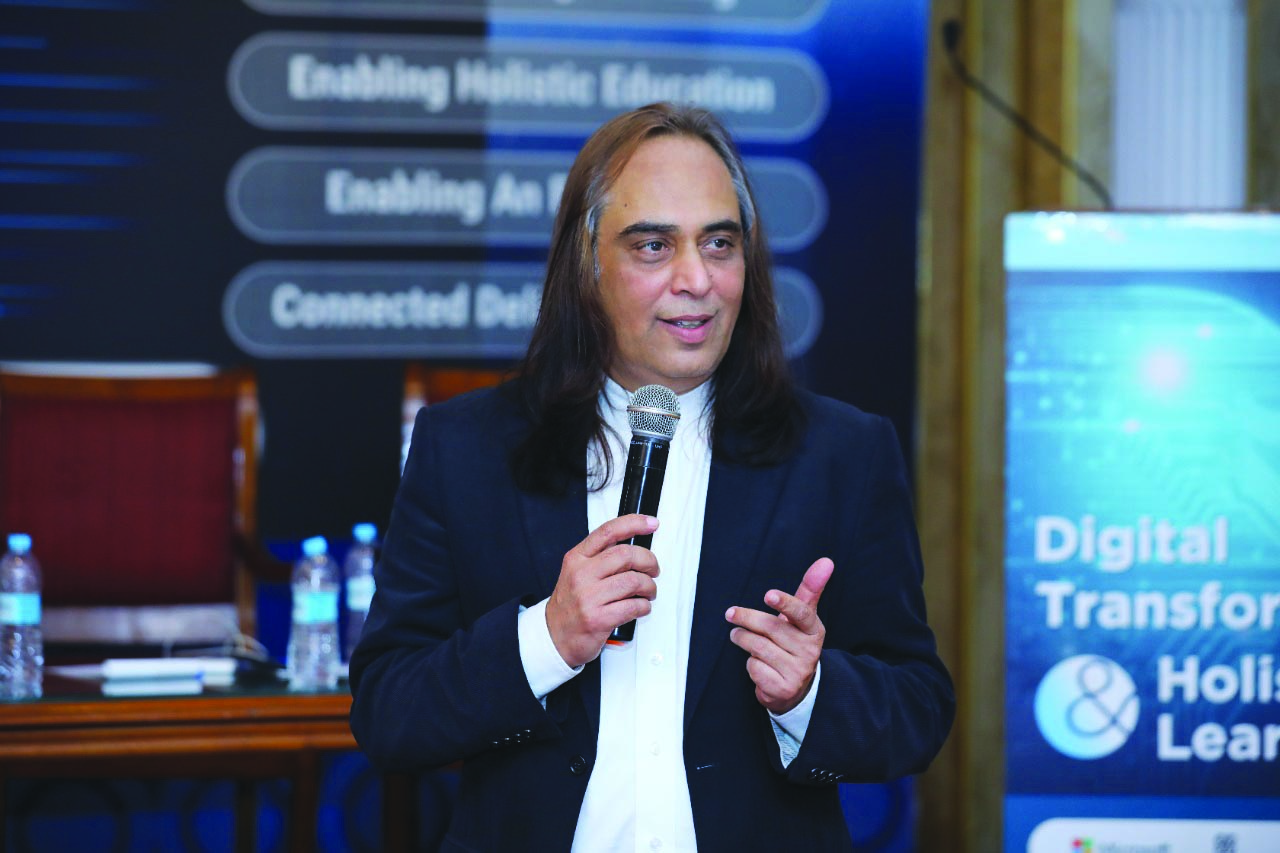
Sait: leadership lacuna
Likewise Ali Sait, founder-CEO of the Bengaluru-based Tech Avant-Garde Pvt. Ltd, global partner of Microsoft Education, faults the state government for widening the digital education divide during the pandemic. “The government has shown complete lack of imagination in managing the education crisis precipitated by the Covid-19 pandemic. Instead of bridging the digital education divide, it has widened it by conspicuous failure to enable poor children to access online education. During the lockdown of government schools for over 18 months, the government made huge savings under the heads of mid-day meals, textbooks and uniforms. These savings should have been deployed for purchasing digital devices for children. Moreover to continue children’s learning, it could have collaborated with edtech companies. For instance, we made an offer to provide the Microsoft Teams platforms free-of-charge to Bengaluru’s local government schools, but the municipal corporation didn’t bother to even respond to our offer. The city’s IT companies, edtech firms and public are ready, willing and able to contribute to bridging the digital divide in education. All that’s needed is for government to show some leadership and put together a task force to implement a mass digital learning provision plan. Unfortunately it has failed to do so,” says Sait, an alumnus of Ramaiah Institute of Technology, Bengaluru, who founded Tech Avant-Garde in 2013. Currently, the company provides Microsoft Education solutions to 22,000 schools countrywide.
Indeed, it’s a measure of pervasive official indifference to education that instead of addressing the challenge of providing government school children access to online classes during the lockdown, the BJP-led state government has been preoccupied with targeting private school managements to reduce their fees. In January 2021, the state government issued an order to private schools to reduce tuition fees payable by parents for the academic year 2020-21 by 30 percent. Subsequently, a Karnataka high court order dated September 16 reduced the fees cut to 15 percent.
“The state government has not only failed to provide government schools computer-aided teaching during the pandemic, it has also financially bankrupted the city’s budget private schools by passing arbitrary fees reduction orders. Such unnecessary interference in private education has harmed all stakeholders — private schools, teachers, parents and students — and widened the digital divide between the city’s elite and poor households,” says Afshad Ahmed (quoted earlier), president, Private Schools and Children Welfare Association, Karnataka.
With the crushing pandemic lockdown having devastated early years and primary education in particular with 70-80 percent of primary children reported to have forgotten what they had learned in previous years, informed education professionals believe that the Centre and states have no option but to sharply increase expenditure on public education to equip government and low-end private schools with the digital resources required for online/hybrid learning. Simultaneously, the government needs to co-opt IT industry leaders to digitalise school education.

Fazal: public utility status call
“Even though Bengaluru has ample financial and human resources and knowhow to equip all government and BPS with new technologies, there’s no political will. The state government needs to urgently prepare a plan to maintain learning continuity of children in three different scenarios — lockdown, hybrid and on-campus learning. For this to happen, ensuring universal access to digital devices, Internet and digital learning platforms is necessary. To transform into a knowledge city, India’s IT capital should take the lead and declare digital learning platforms a public utility like electricity and water supply,” says Nooraine Fazal, co-founder and managing trustee of the top-ranked Inventure Academy, Bangalore (estb.2005) and a member of the Bangalore Political Action Committee (BPAC).
Simultaneously, there’s growing awareness within right-thinking citizens of the garden city that the ball is not entirely in the government’s court. Unlike Silicon Valley billionaires who have established huge philanthropic foundations, Bengaluru’s IT tycoons, who are dependent on high-quality human resources, have done little to develop a talent pool. “It’s unfortunate that they haven’t done much for the city that has given them so much. There is not even one public library or a free-of-charge high-quality school endowed by an IT billionaire in the city. Instead, they are busy buying million-dollar homes. Moreover, the IT industry has not engaged sufficiently with the city’s school and higher education systems. Therefore, I am not surprised that so few IT leaders came forward to address the digital education divide precipitated by the pandemic. My advice to IT industry leaders is to wake up from their slumber and engage with the government, schools, education NGOs and activists to address the digital education emergency prompted by the Covid-19 pandemic. The IT industry stands to benefit the most from an excellent education system which provides high-quality graduates,” says a Bengaluru-based educationist who preferred to remain anonymous.
Unfortunately, such advice tends to fall on unheeding ears. With the state’s politicians preoccupied with preparing for the legislative assembly election scheduled for early 2023, and the city’s IT and business leaders cut off from the citizenry behind the high walls of their gated communities, the digital divide is set to become wider. After much procrastination, the BJP/NDA government has permitted schools to restart on-campus in-person education for classes VI-XII. But for children in preschool and primary education in the country’s IT capital the bleak future has become bleaker.
India’s digital divide
According to the National Sample Survey 2017-18 of the Union ministry of statistics and programme implementation, only 24 percent of Indian households have Internet connectivity and a mere 8 percent of households with children and youth (5-24 years) own a computer with Internet connectivity.
A September 2020 study by Oxfam in five Indian states (Odisha, Bihar, Jharkhand, Chhattisgarh and Uttar Pradesh) reported that 53 percent of parents experienced persistent Internet connectivity/speed problems. Of them, 32 percent said the Internet data packages are unaffordable, 22 percent reported inaccessibility to digital devices, and 18 percent were bereft of Internet connectivity. “Despite the sample consisting of parents belonging predominantly to urban areas and being digitally literate, 82 percent still faced challenges in supporting their children to access digital education,” says the Oxfam study.
Additional inputs Summiya Yasmeen
Also read: Online learning has widened racial, gender divide in education: OUP study
[/userpro_private]























